Is knowledge the truth?
What assurance do you have?
If not for guessing.
Everything mentioned in this essay is true. Not to you but to me. Truthfully, this is my best guess at explaining how knowledge evolves.
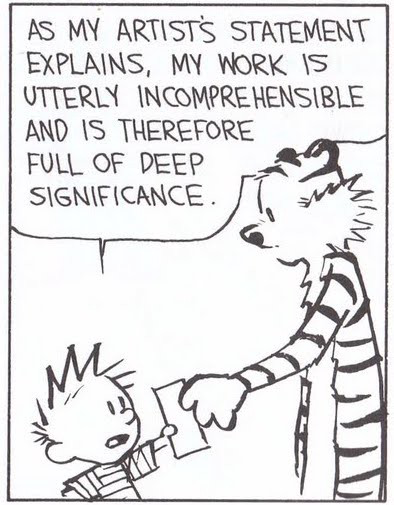
This essay will unfold into the following:
- Evolving From Experiments
- Sticking To The Status Quo
- Decentralized Knowledge
- Guesses For The Future
Evolving From Experiments
Knowledge is a variation of guesses, made true or false by criticism and experiments.
The internet — a collection of open-sourced protocols — has become the foundation for the knowledge we’ve built. It took decades of experiments to get here. When does it stop? Never. Experiments are necessary for knowledge to be criticized, errors corrected, and solutions selected. Unfolding new knowledge becomes a flywheel for new experiments:
“Six decades into the computer revolution, four decades since the invention of the microprocessor, and two decades into the rise of the modern Internet, all of the technology required to transform industries through software finally works and can be widely delivered at global scale.”—Marc Andreessen
Justified knowledge happens when existing ideas aren’t criticized enough to be disproved. This slows down experiments from happening, new solutions from unfolding, and better options to be pursued. Societies fail because of their inability to correct problems when realized. If civilizations can’t fix fragile ideas quick enough, catastrophes would eventually cause them to fail.
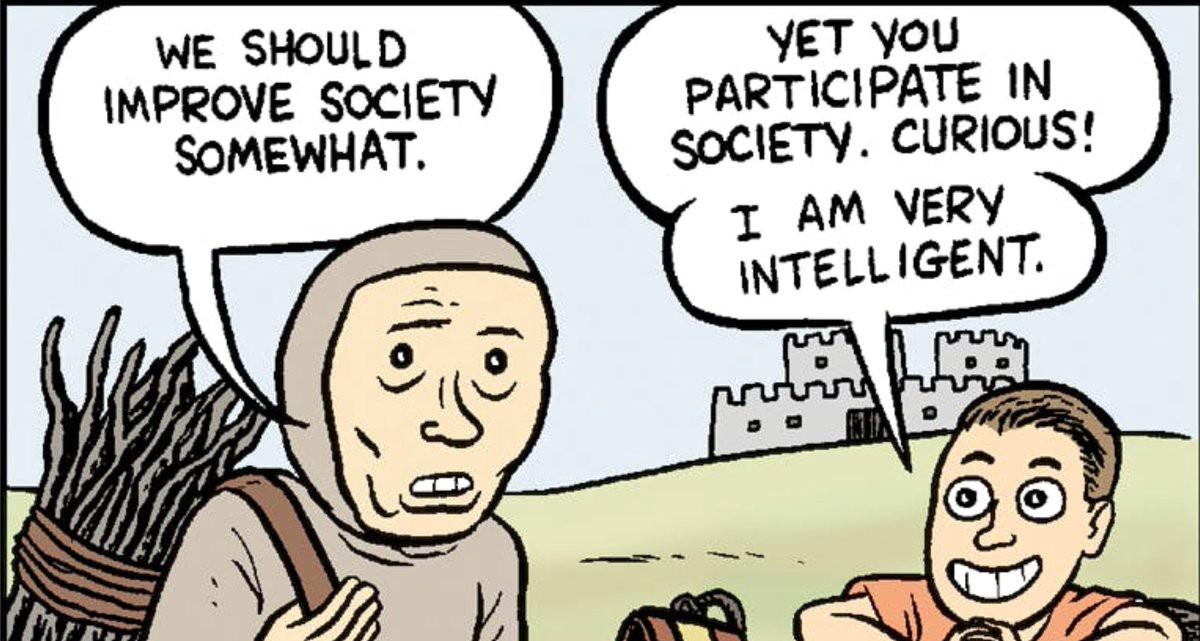
Rome Could Be Destroyed In A Day
The Roman Empire was a powerful civilization that had problems with corruption. Law administrators were appointed and elected by citizens to create and pass legislation. However, as the state’s circumstances went through changes, its constitution changed very little. What did change were the laws that restricted actions of Roman citizens. This gradually made the state’s people more corrupt to find ways around such restrictions. Flaws of Rome’s corrupt system came from appointing administrators who ran for power, not virtue:
“For then it was not the most virtuous but the most powerful who stood for election, and the weak, even if virtuous, were too frightened to run for office.”––Machiavelli
After they conquered countries in Africa and Asia, the Roman empire believed that they’d never fall. Each passing day gave more confidence to that statement. This sense of security made people elect leaders based on popularity rather than competence. As a result, their central political experiment failed. This could’ve been prevented had the constitution been criticized enough to seek out new solutions.
Yes reader, I hope you’re not the jolly fellow who fails to see the need for experiments. By criticizing knowledge, we find flaws in it. Experiments find fixes to such flaws, which bring in new ideas. We need variations of such guesses and experiments for knowledge to evolve. As you read my words and contradict or question them, understand the profoundness regardless of it being true or not:
"The opposite of a fact is falsehood, but the opposite of one profound truth may very well be another profound truth"—Bohr
Sticking To The Status Quo
Authorities who justify existing ideas often resemble popular high-schoolers banging on tables and singing:
“No. No. No.
Stick to the stuff you know,
If you wanna be cool follow one simple rule,
Don’t mess with the flow, no-no.
Stick to the status quo!”
Justified knowledge is the product of knowledge not criticized enough to understand its limitations. It has the power to shut down experiments to prevent further change from happening. Suppressing criticism protects the status quo from change. This blurs the lines between what’s fair and unfair.
The Status Quo On Finance
Of roughly 750 currencies that have existed since 1700, only about 20% remain, and all of them have devalued. The dollar, along with other state-held currencies today face similar problems. Meanwhile, people who use such currencies have no choice but to trust the state’s valuation in them.
Experiments and authorities don’t mix because the search for truth becomes a search for endorsement. The U.S. dollar became the world reserve currency as it pegged itself to gold. In 1971, excessive spending by the federal reserve made the dollar claims on gold more than the actual amount of gold available. Through America's authority, the dollar’s link to gold broke away. This decision gave birth to “fiat currency”, meaning “formal authorization”:
“We have developed these practices and institutions by building upon habits and institutions which have proved successful in their own sphere and which have in turn become the foundation of the civilization we have built up.” —Friedrich Hayek
Fiat became the standard for monetary knowledge today. It’s based on people trusting the money supply on the state’s promise to not inflate it. This solution is sustainable as long as inflation is under control, which hasn’t been too promising. For years, the federal reserve have authorized monetary policy while claiming power to regulate financial experiments. Central banking structures will continue to justify the status quo on finance until suitable knowledge comes along to change it:
“The U.S. set the rules of the game through their control of the international financial institutions – the International Monetary Fund (IMF) for short-term lending to sovereigns and the World Bank for long-term development finance. The U.S. maintained an open capital account and allowed their securities markets to become a global piggy bank for savers worldwide…We need foreigners to buy our debt, so the government can finance its structurally high levels of spending. But we increasingly seek to impose moral conditions on who can hold that debt.”––America’s Quiet Default
For all we know, government intervention––like printing dollars from thin air––may eventually suffocate the fish:
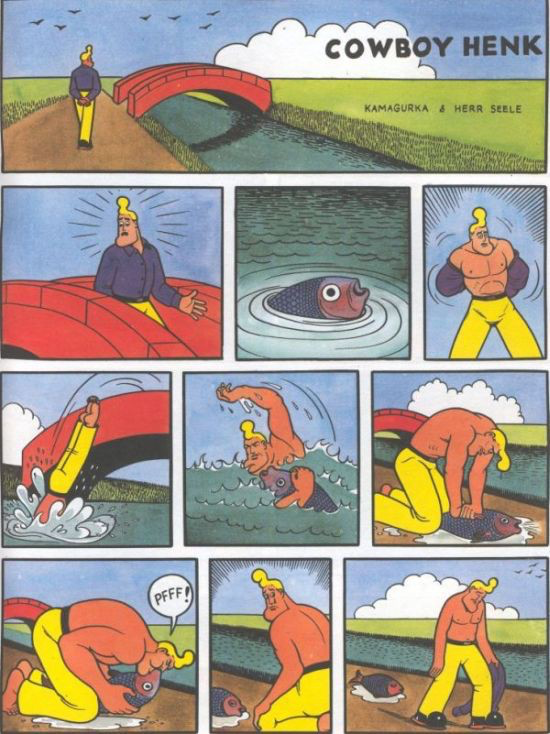
Don’t get mad dear reader, this does not invalidate you by saying authority is bad and there must be defiance to evolve. I mean to demonstrate that knowledge justified by authority––rather than supporting evidence––should not be considered the furthest truth we have. While authority may stop competition to gain power, criticism of ideas are necessary. We must experiment to test true limits of the status quo, even if it means failure.
Decentralized Knowledge
Decentralization happens when no single owner can alter the rules of its network.
Traditional computing lets companies own the distribution of online content within their platform. They own the hardware, which lets them control the software within it. Yes reader, I understand these companies make it easy for people to publish content online to be shared with others. I mean to remind you that for-profit companies have incentives that are different from their users.
The popularity of TikTok involves making it easy for people to remix anyone's content on the app. It's dead simple to grab any element from a TikTok and create something new with it. The problem is that such content is centrally controlled by its platform. Those who own the hardware control the rules of its software. Does TikTok let you convert your following to YouTube subscribers? That’s against TikTok’s status quo. This resembles power central banks have with monetary policy. Whether it’s data or money, central owners can impose certain restrictions to the actions of its users:
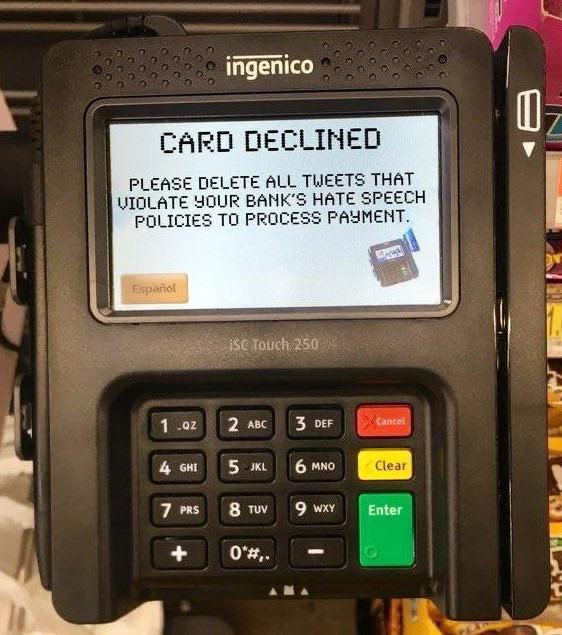
Fundamentally, blockchains are a solution to an old computer science problem that gives people knowledge to run a censorship-resistant system. A decentralized system fixes traditional computing by letting software run autonomously from owners of its hardware. It creates a digital space without authority to justify status quo:
“Anyway, from this vantage point, many of the ideas on how to organize human society have been around forever, but technologies make them feasible and infeasible by turns. A political ideology that requires total centralized control may seem unstoppable when technology favors this…and then may become untenable when innovation turns things in the direction of decentralization. ”––Balaji Srinivasan
Bitcoin is the first blockchain experiment as a response to the economic interventions of central banks. Architecturally, blockchains let computers make logical agreements that a system will operate as designed, without intervention. There’s no owner to impose power over the network. The scarcity of bitcoin without central control creates the software equivalent to a periodic element.
Surely you’re thinking bitcoin is failing in its approach as a digital currency. You’re not wrong (yet), but it's an experiment worth demonstrating nonetheless. Given that there is no alternative to providing digital value transfer without central authority, it is by definition an efficient solution. Whether decentralized experiments are adopted or not is determined by direct feedback from free markets. Though it may not be suitable to adopt, watching it unfold is worth betting on.
Guesses For The Future
“All of the information accessible on the internet is estimated at 40 trillion gigabytes, which is roughly enough to hold a high-def video lasting the entire 14 billion years since the big bang.”––Morgan Housel
The internet evolved from a decentralized experiment that let computers communicate with each other. This eventually evolved to let people communicate ideas through computers. From a collection of network protocols, we found a microphone to share our memes:

The most important essay on finance this decade, “Why Software Is Eating The World” has partially come true. Software gains competitive advantage around the world because of how the internet scales distribution. What is important to note, is that there are strong winner-take-all effects that can happen. The monopoly of data exchanged by people on such platforms can be used against them through targeted media, misinformation, and censorship.
I believe that we're in the middle of a dramatic experiment in which decentralized organizations are poised to contribute a large part to solving such problems. Take it from a self-proclaimed professional cloud developer. We are entering a golden-age of computing that offers knowledge of decentralized digital ownership. The experiments on blockchains are improved extensions of what the internet first started out as:
“I don’t think we’ve even seen the tip of the iceberg…I think the potential of what the internet is going to do to society, both good and bad, is unimaginable. I think we’re actually on the cusp of something exhilarating and terrifying.” —David Bowie
Ah reader, you’ve read far enough. Nice. This has been a summary of my knowledge on––well––knowledge, experiments, authority, and decentralization. There are still many ideas on blockchains being tested. Until it scales for people to truly adopt, markets will continue to prove its infancy. That’s not to say the ideas aren’t worth betting on:
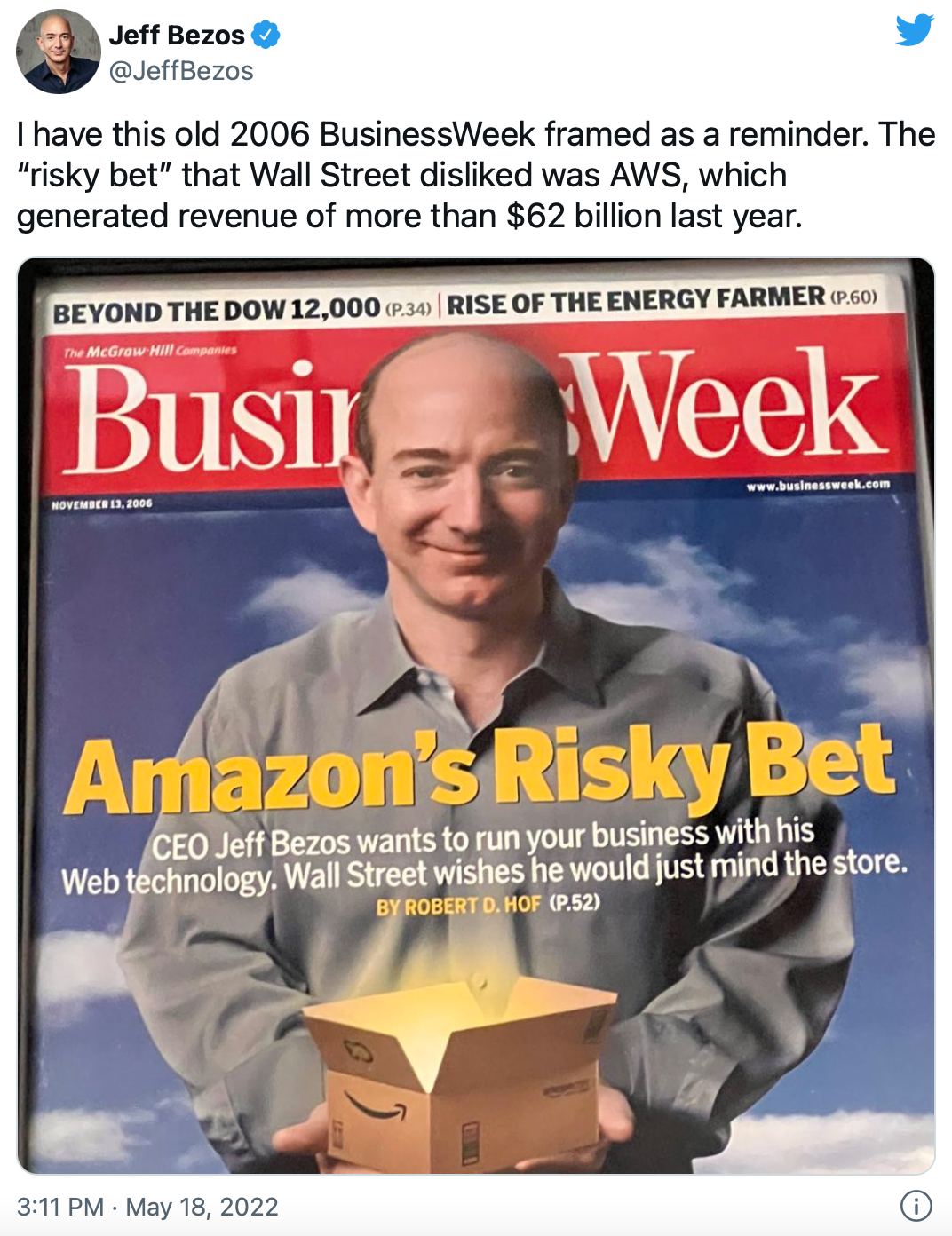
Future essays will come after I’ve invested more time and energy to experiments on the third era of the internet. Until then, this will remain to be my first experiment. Let it be accountable to your criticisms for us to unfold what’s true.
You have read this far,
Please understand conjecture,
For it may be true.
My dearest of readers, if you’ve read up-till here, you might as well collect this NFT. After all, it’s my first experiment on a new internet era :)
-rushil
The guesses of this essay were made because of the following explanations:
The Beginning Of Infinity
Why Software Is Eating the World
The Use Of Knowledge In Society
On Impossible Things Before Breakfast
The End Of The Future
America’s Quiet Default
Why web3 matters
Decentralization for Web3 Builders: Principles, Models, How
The Network State
Designing Token Economies
Optimism
The Evolution Of Everything
Antifragile
